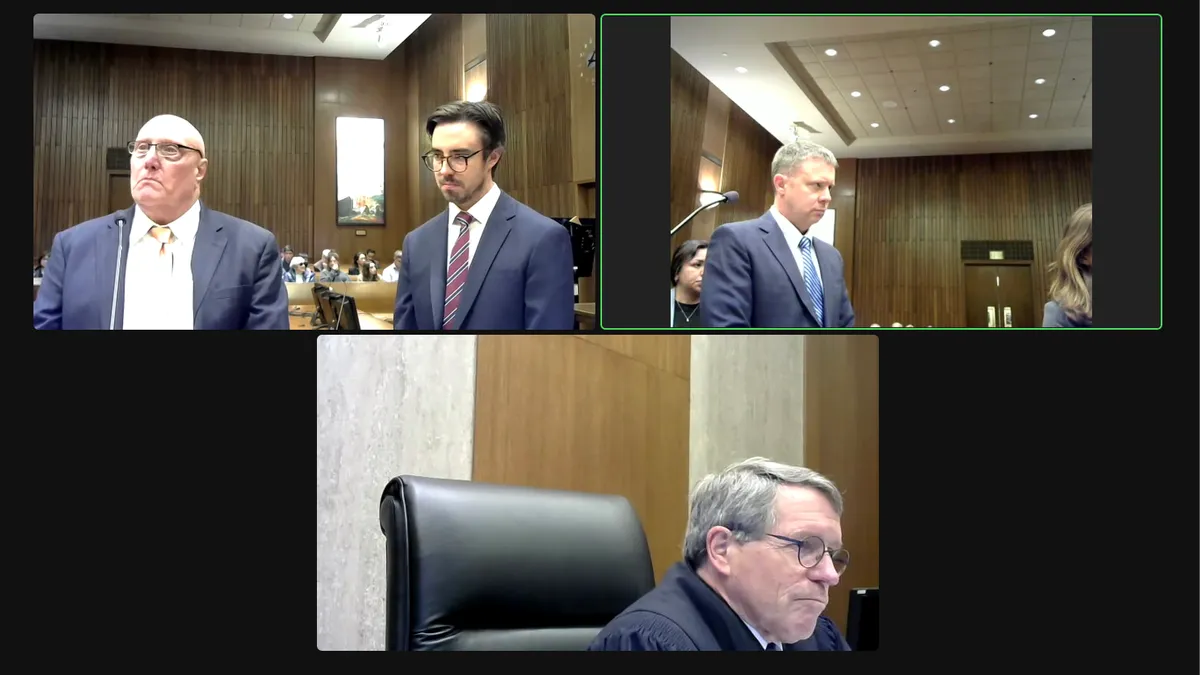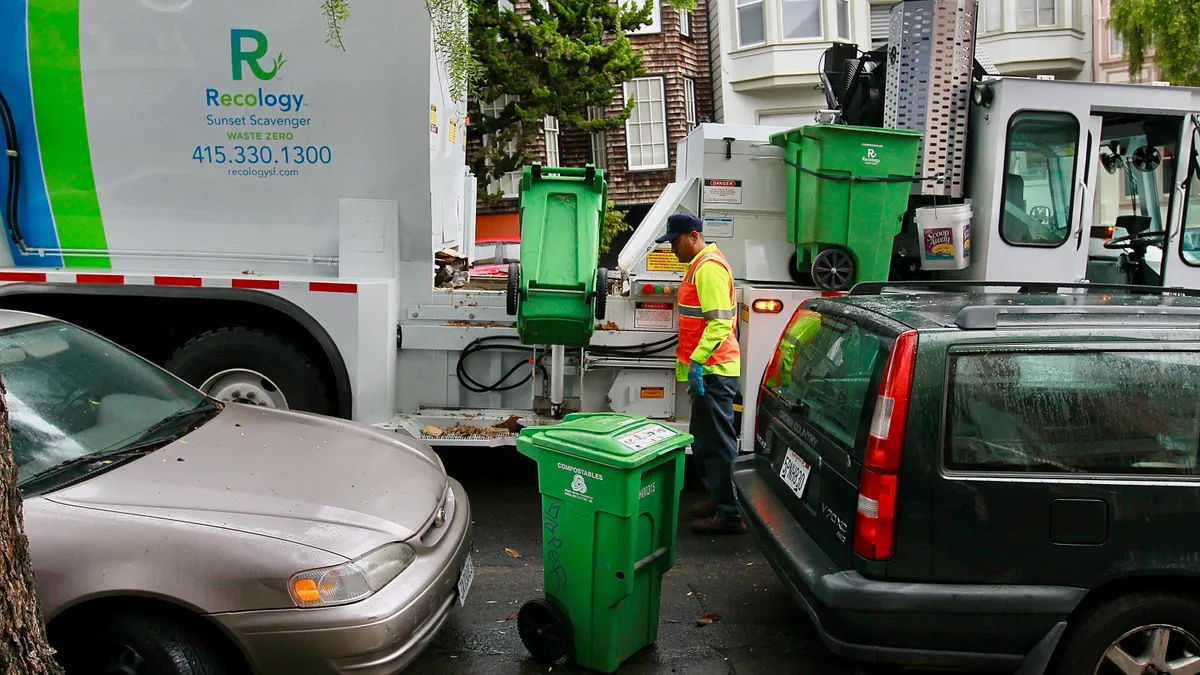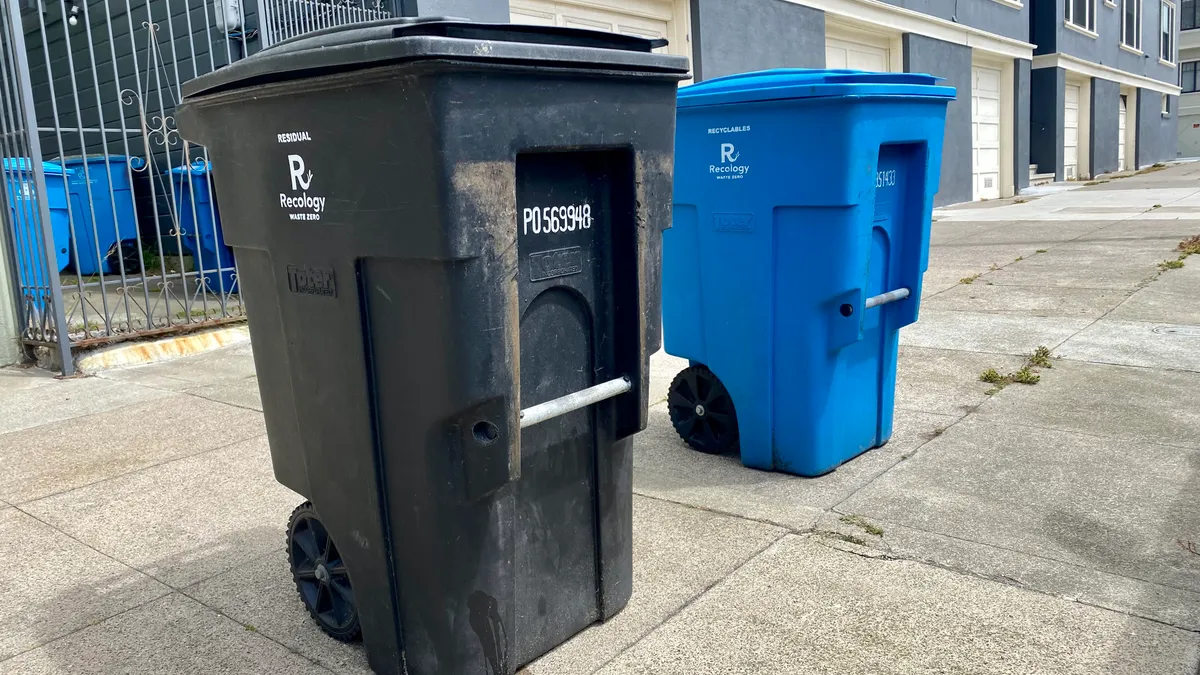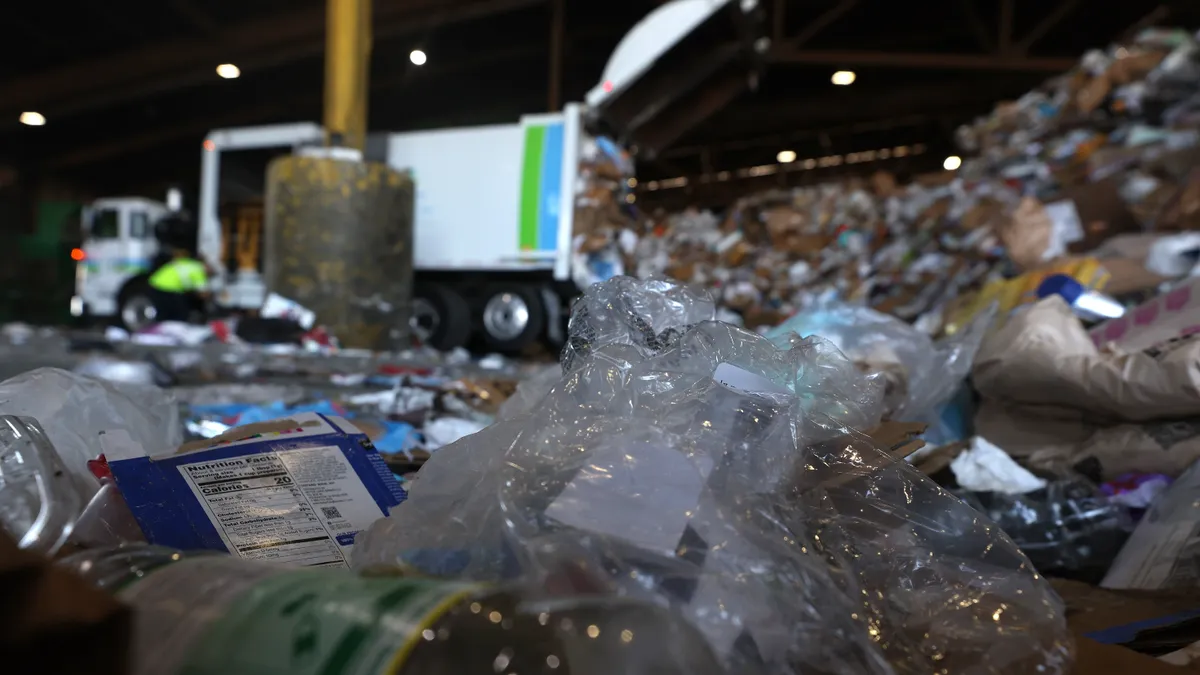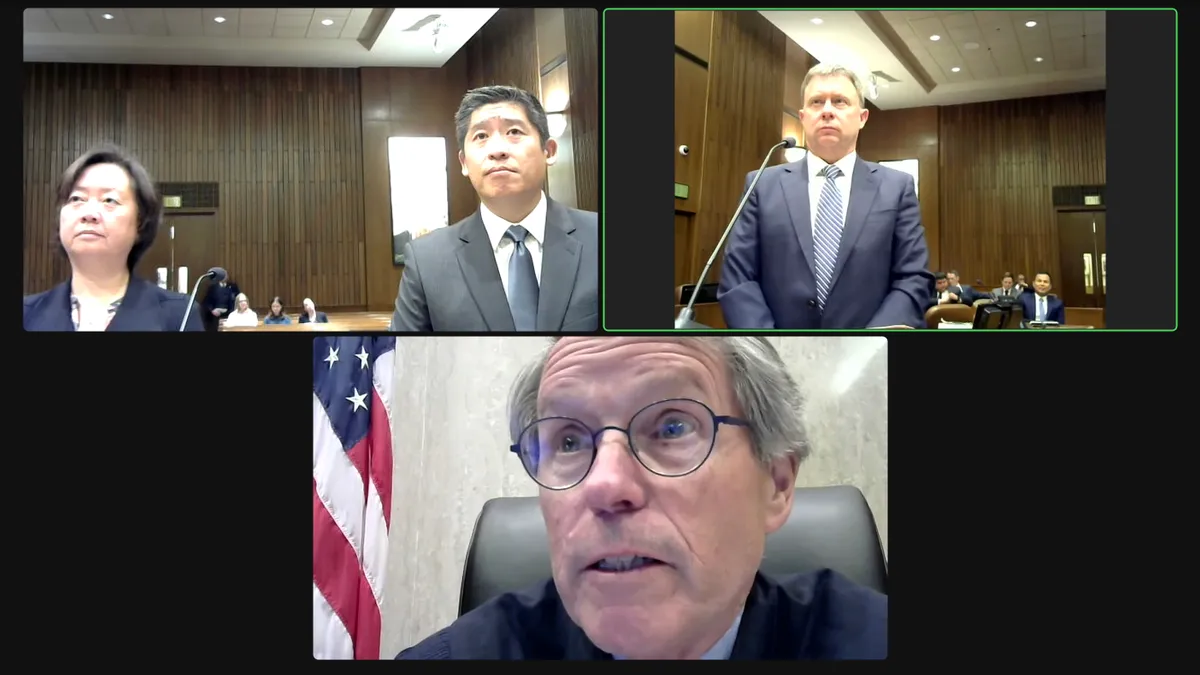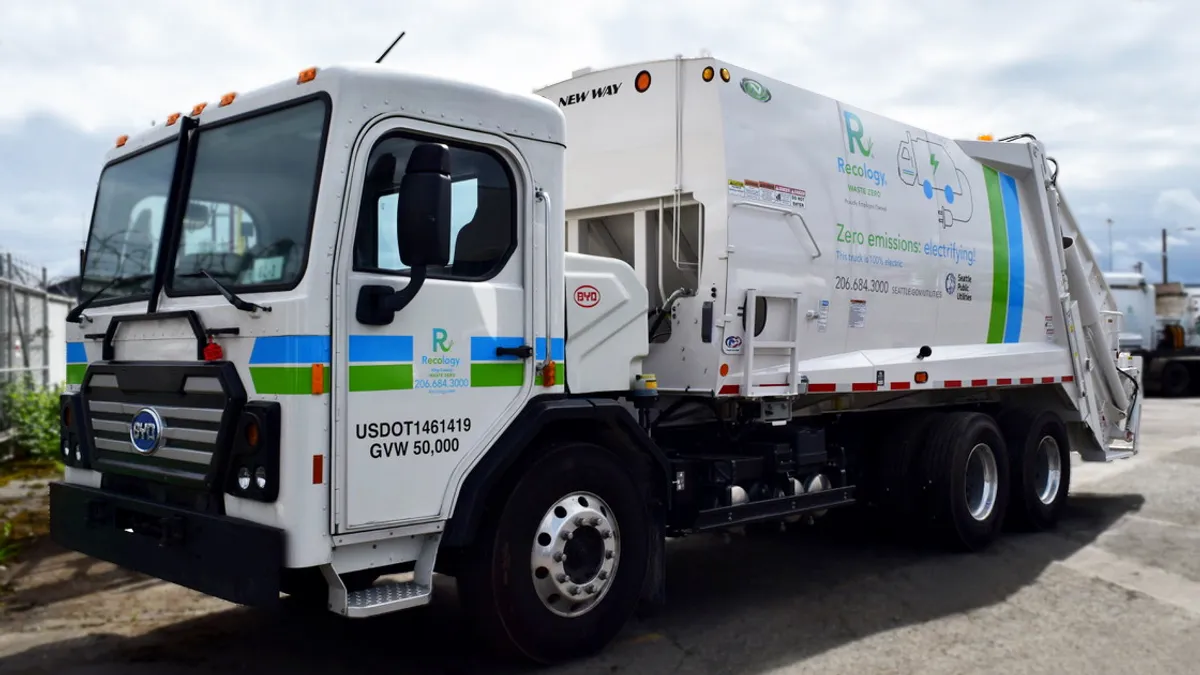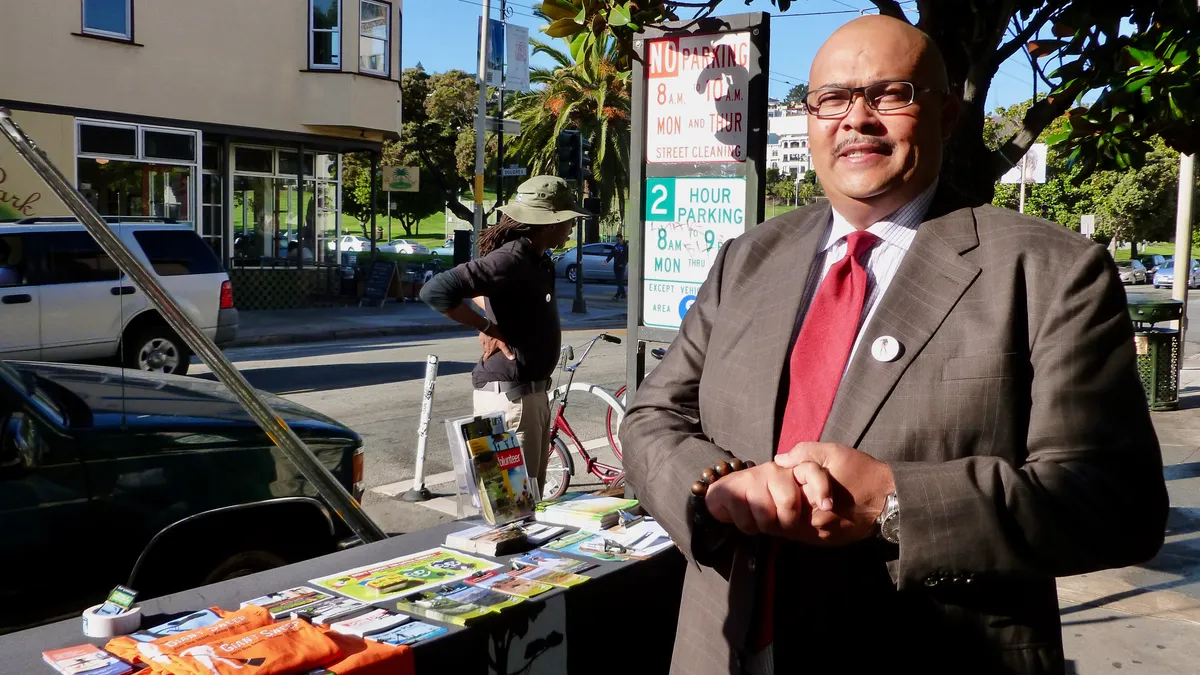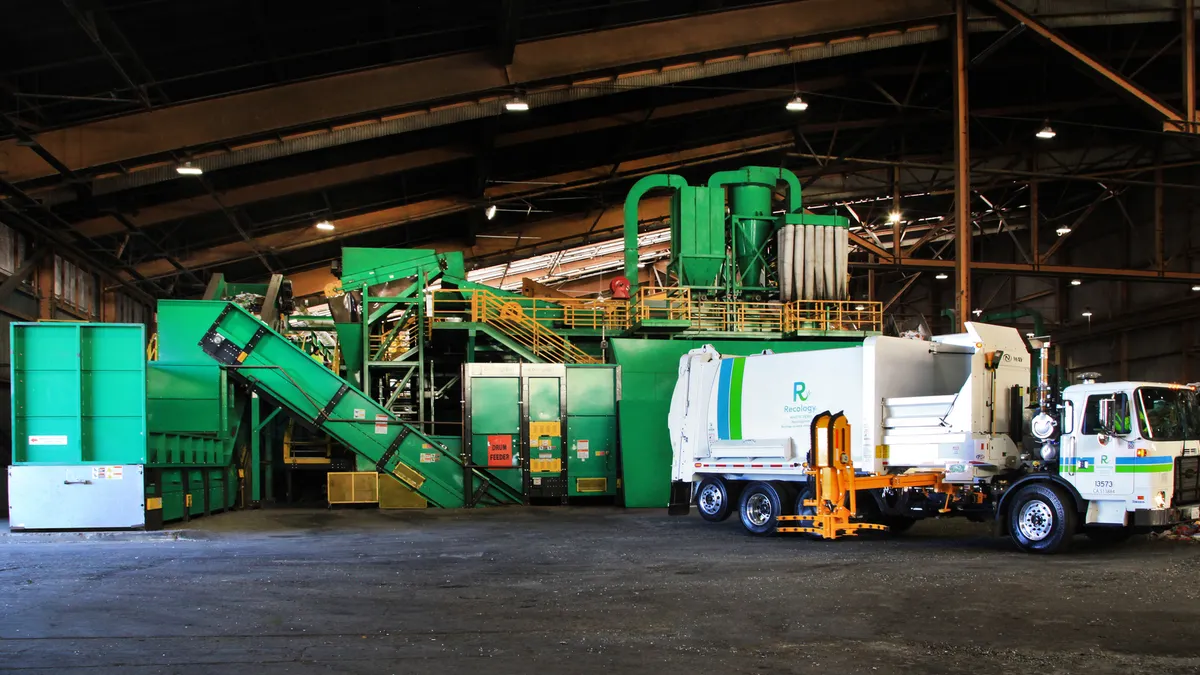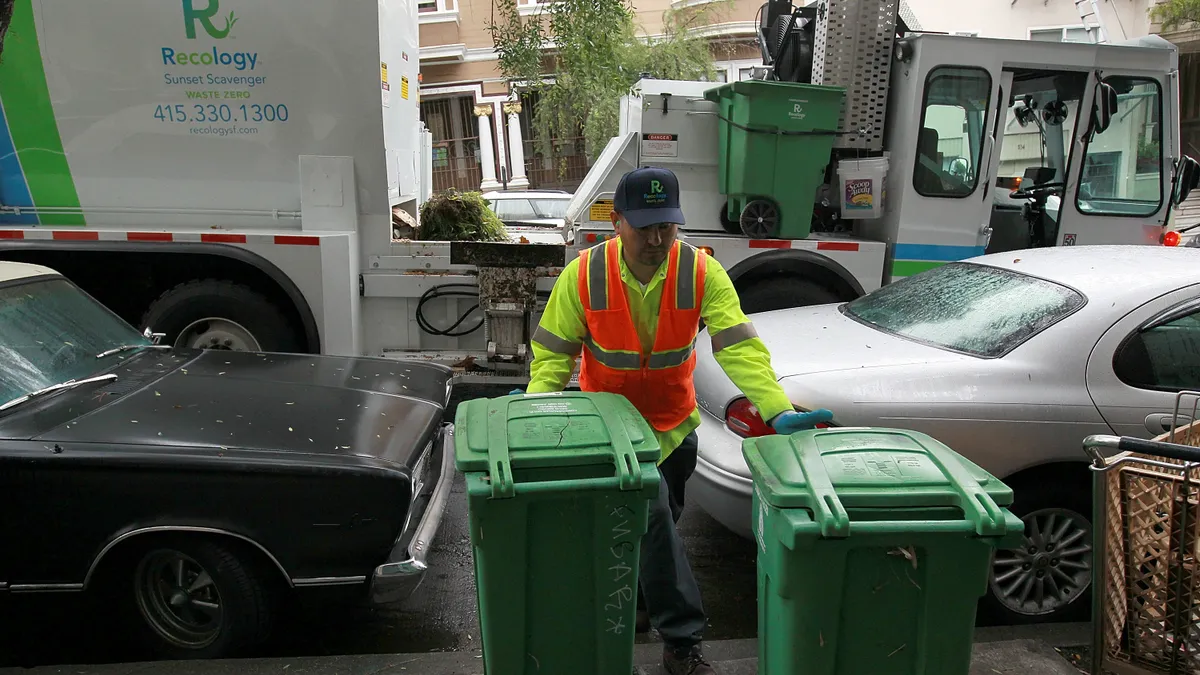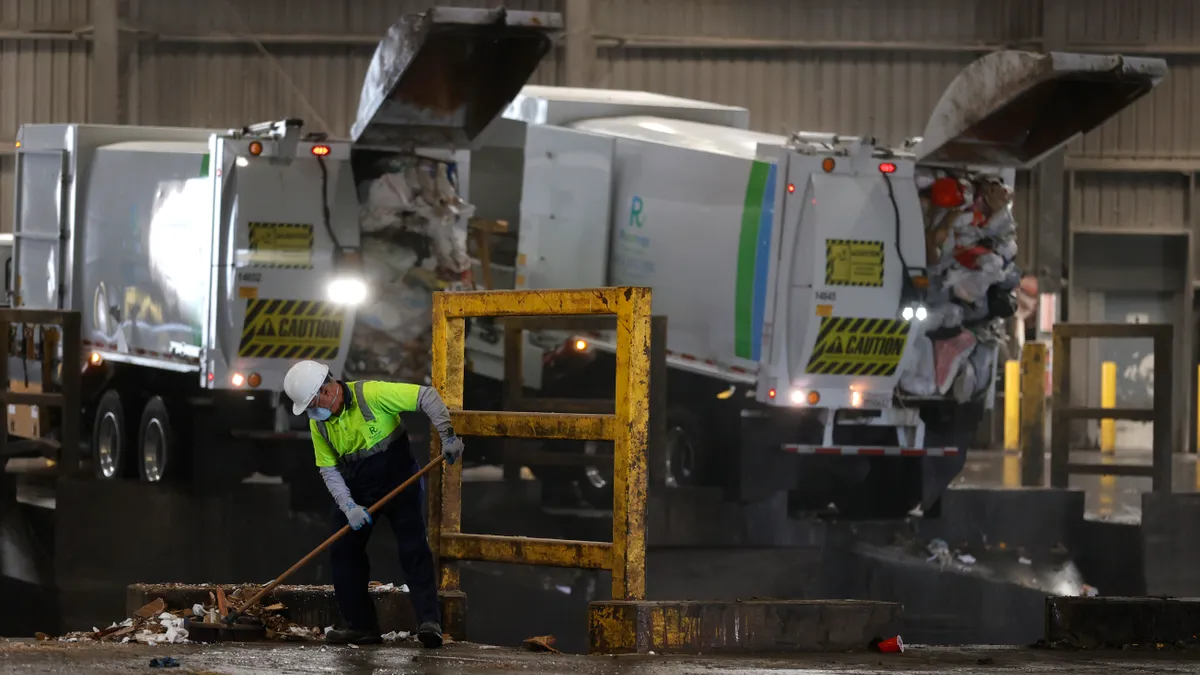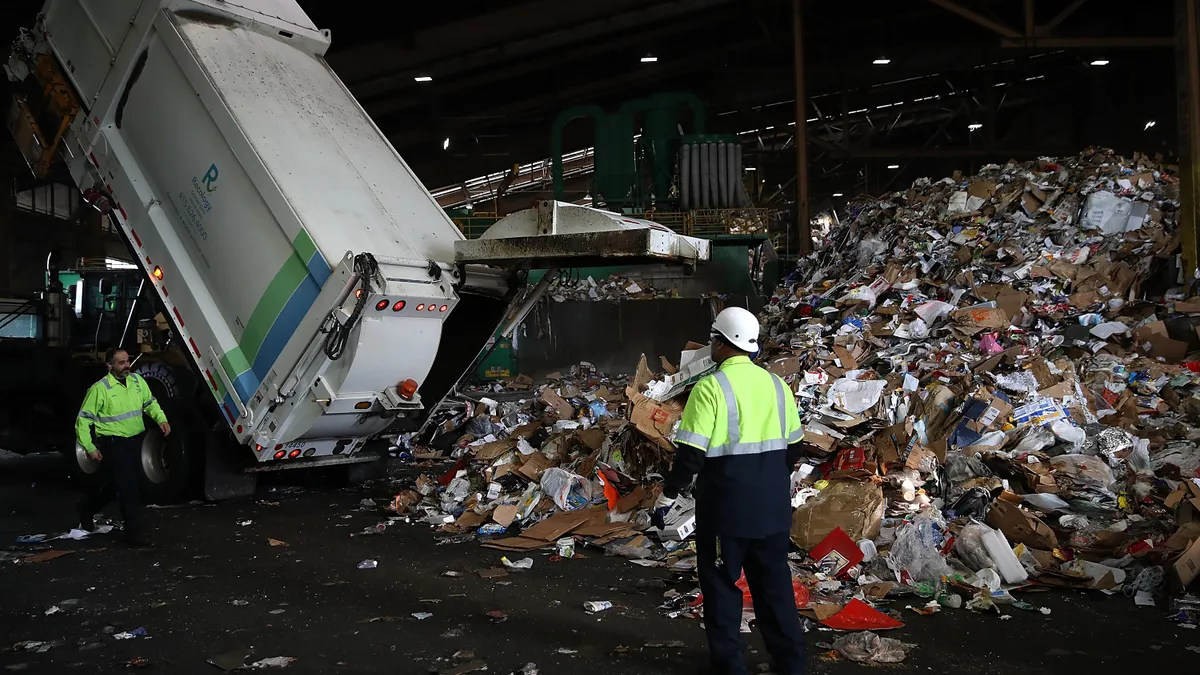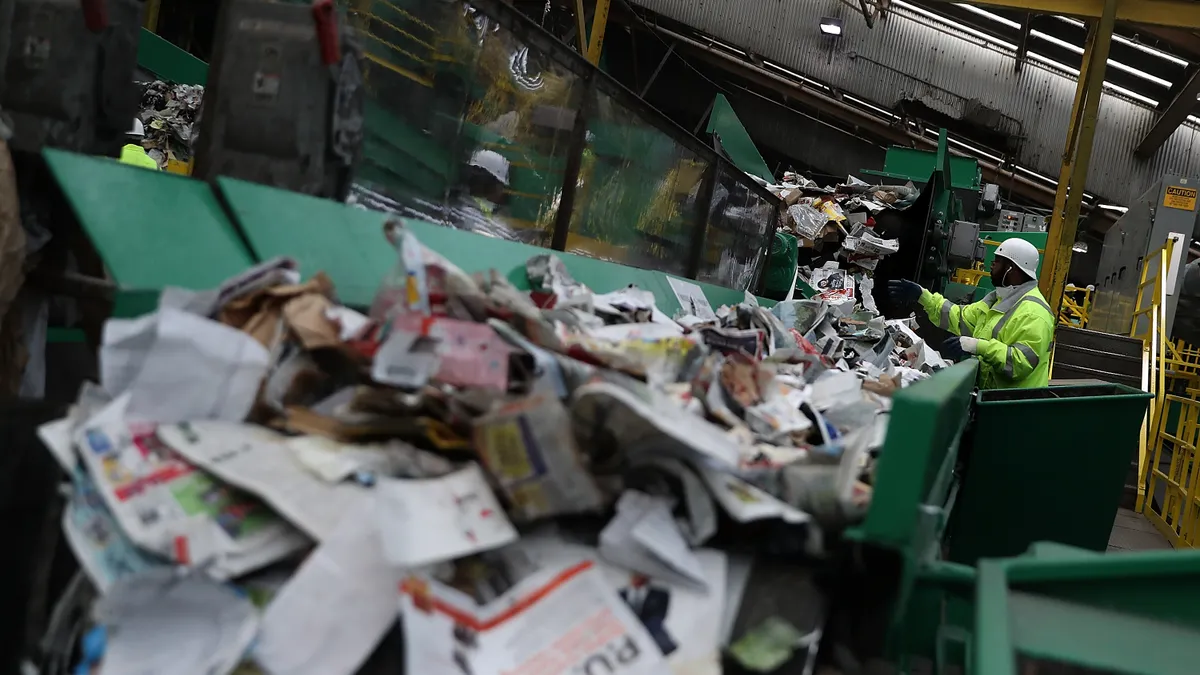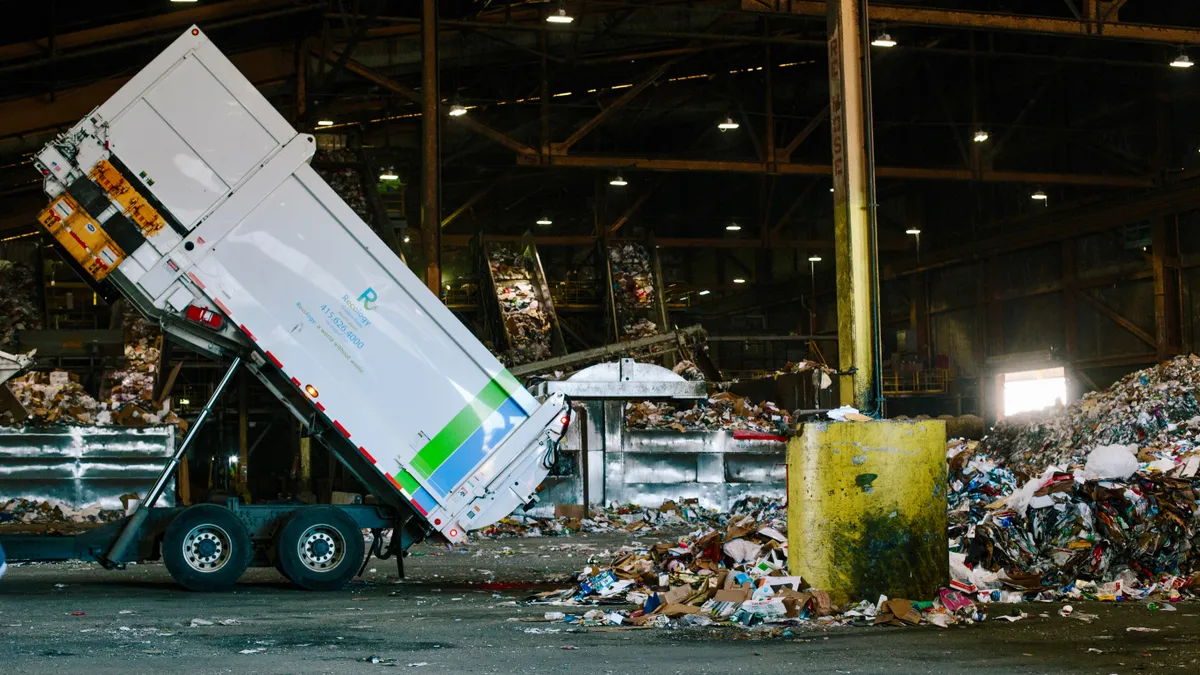Paul Giusti, a former Recology employee, was sentenced to six months of home confinement for his role in facilitating more than $1 million in company funds and related benefits to a former San Francisco official.
Giusti, 68, was government and community relations manager for Recology’s San Francisco group until what he described as a “forced retirement” in 2020. In 2021, he pleaded guilty to one count of conspiracy to bribe a local official and commit honest services fraud based on multiple actions intended to ensure a favorable relationship with Mohammed Nuru, San Francisco’s former public works director.
“Because of the power and influence he wielded in his official position, a happy Nuru was good for Recology’s business. The converse was also true. Recology understood that an unhappy Nuru could be very bad for Recology’s business,” said Giusti in a quote from his plea agreement that was included in the the U.S. Department of Justice’s sentencing recommendation.
This decision was part of an overall three-year probation sentence. Additionally, Giusti is required to pay a $30,000 fine and perform 300 hours of community service. This sentence was in line the recommendation of federal prosecutors. Giusti’s attorney suggested three years probation and 300 hours of community service, without home confinement.
John Porter — who previously served as vice president and manager of the company’s San Francisco group, and supervised Giusti — was also sentenced in September to six months of home incarceration.
The case
Giusti was the primary point of contact with Nuru during the period under investigation and facilitated multiple benefits.
This included $750,000 worth of bribes that were “donated” by Recology to a nonprofit “ostensibly for city-wide cleanup events,” according to court documents. While prosecutors said much of this funding was used for cleanup events, they also described it as a flexible “slush fund” for Nuru.
This overlapped with Nuru overseeing a 2017 review of Recology’s collection rates in San Francisco, where it holds what the DOJ describes as a monopoly on waste and recycling services. According to prosecutors, the 21% increase recommended by Nuru helped boost Recology’s annual revenue in San Francisco from $289 million to $351 million. From 2015 to 2017, Nuru also approved the company’s requests to access over $10 million in “zero waste funds” for capital improvements.
Giusti also helped direct a total of $60,000 in payments from Recology, "concealed as donations to another non-profit” that were instead used for “increasingly elaborate and lavish holiday parties” hosted by Nuru over four years. One payment came in 2018 as Nuru was weighing a request from Recology to increase tipping fees at its Sustainable Crushing facility.
Additionally, Giusti set up a paid internship for Nuru’s son at Recology before the company decided that was not appropriate. Giusti then helped facilitate an internship for the son, still funded by Recology, at a nonprofit.
At the sentencing, Giusti described this as “doing a favor for a friend” and said he didn’t recognize the ethical issues at the time. Giusti’s attorney also noted that his former manager, John Legnitto, previously facilitated a similar arrangement for Nuru’s daughter.
This closes another thread in a corruption case that started with the FBI arresting Nuru in early 2020. The period has been consequential for Recology, leading to leadership changes and multiple other events.
Last year, Nuru was sentenced to seven years in prison for honest services wire fraud as part of a broader investigation that has ensnared numerous people, including other government officials.
Recology entered into a deferred prosecution agreement with the DOJ in 2021 that included a $36 million penalty. Recology also agreed to more than $100 million worth of ratepayer reimbursements through multiple agreements with local officials. Last year, San Francisco voters approved a ballot measure to update the rate-setting process.
A separate case questioning the reimbursements, which could possibly lead to additional repayments, is pending in a state appeals court. The San Francisco Chronicle recently reported that Recology believes the suit is “misguided and ultimately will fail.”
Following this week’s news, Recology reiterated that “new management implemented enhanced compliance and training programs, including strict policies to address situations where Recology’s employee-owners may interact with public officials,” and distanced itself from Giusti.
“Recology ended its employment of this individual in 2020, well before any charges were filed against him. Recology has acknowledged that it is responsible as a matter of law for the acts of its former employees and has fully cooperated with the U.S. Attorney’s Office in its investigations. Our company unequivocally condemns Mr. Giusti’s conduct and expects all of our employee-owners to act according to the highest ethical standards,” said spokesperson Robert Reed in a statement.
Company culture
During the hearing, Giusti said he got his start in the industry at the age of 22 by working with his father on a collection truck for Sunset Scavenger — a company that was later acquired by Norcal (now Recology).
"It weighs heavily that I violated a trust built over 42 years of life in service to the people of San Francisco,” said Giusti in an apology statement at the hearing. "I'm embarrassed that I allowed misplaced and undeserved loyalty to overshadow my sense of right and wrong."
According to a filing, Giusti was limited from higher management roles due to his lack of a college degree, but did move into middle management positions. According to his attorney’s filing, former head of the San Francisco group John Legnitto “trained Paul that part of his job involved taking Nuru out for meals and agreeing to his requests for contributions.”
"This is how he was told to do his job and he tried to do it as well as his could for as long as he could,” said Hartley West, Giusti’s attorney, at the hearing.
Legnitto died in 2014. This pattern continued under his successor, Mark Arsenault (who later went on to become Recology’s chief operating officer, before also retiring in 2020) and then John Porter. Arsenault has not been charged.
According to his attorney’s filing, “Paul never received training regarding restrictions on contributions or gifts to government officials” and the quality of his relationship with Nuru was part of Giusti’s regular performance evaluations. During the hearing, West also noted that “none of this was kept secret, certainly, from supervisors.”
Judge William Orrick said he recognized that Giusti did not profit directly from the bribes, nor was he the sole actor with knowledge at the company.
"I think it is probably consistent with the culture in which you were working ... that's what you thought you were supposed to be doing,” said Orrick. “And of course it is so harmful to the way that public business in particular gets done."
Orrick said he gave the same sentence as Porter because Giusti was involved in the scheme for longer, but with less restrictive home confinement conditions.
The charge could have come up with up to five years in prison and a larger fine, but prosecutors also factored in Giusti’s cooperation. While he initially deleted texts from Nuru after the news broke, prosecutors note Giusti soon came forward to offer information before he was charged later that year.
“Giusti was the first, and remains the only individual, inside Recology to come forward, admit their conduct, plead guilty, and provide substantial assistance to the government,” said prosecutors. During the hearing, Assistant U.S. Attorney David Ward described Giusti’s cooperation as “significant” and said it helped with the deferred prosecution agreement against Recology, as well as the Nuru and Porter cases.
During Porter’s sentencing in September, Ward said the federal government did not have sufficient knowledge to prove that anyone else at the company was “criminally aware” of the actions. On Thursday, Orrick shared his opinion.
"People who have not appeared before me at Recology must have had a pretty darn good idea of what was going on,” he said.



